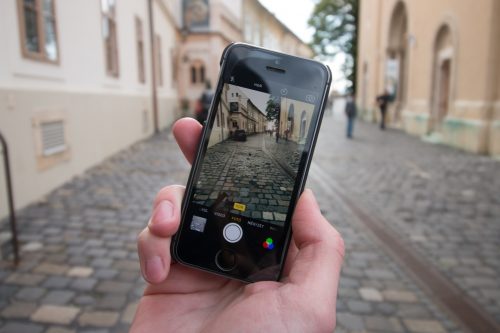OpenNorth: The Open Smart Cities Guide for Canada
Canada, like so many other countries around the world, is embracing the idea of smart cities. This spring Industry Canada closed a competition for the Smart Cities Challenge. They describe it as “…a pan-Canadian competition open to communities of all sizes, including municipalities, regional governments and Indigenous communities (First Nations, Métis and Inuit). The Challenge encouraged communities to adopt a smart cities approach to improve the lives of their residents through innovation, data and connected technology, offering:
- One prize of up to $50 million open to all communities, regardless of population;
- Two prizes of up to $10 million open to all communities with populations under 500,000 people; and
- One prize of up to $5 million open to all communities with populations under 30,000 people (Industry Canada)
As you can see from the huge cash numbers above the Smart cities phenomenon is becoming big business in Canada and around the world.
The “smart city” is a phenomenon
The “smart city” is a trend that grows with the number of devices that connect us to the internet and the data that we accrue every time we log on in a public space. Cities like Singapore, London, San Francisco and Chicago are using the the ever-growing web of devices that connect to the Internet of Things (IoT) (which can include anything from smart phones to traffic lights) to make life in urban spaces more livable. For example, the City of Montreal is engaged in a large scale “Smart and Digital City” which involves upgrades of technological architecture, city-wide, functioning Wi-fi, and making “useful data that can simplify the daily lives of its citizens,” available to the public. To use the Open Smart City Guide’s definition, smart cities are “[technologically] instrumented and networked [cities], [with] systems [that are] interlinked and integrated, and [where] vast troves of big urban data are being generated [by sensors] and used to manage and control urban life in real-time”.
But how do we build smart cities in Canada?
OpenNorth Writes Open Smart Cities Guide
To answer that question, OpenNorth, Canada’s leading not-for-profit organization specialized in open data, open government, community engagement, open smart cities and civic technology, used funds from Natural Resource Canada’s (NRCAN) GeoConnections program to launch Open Smart Cities. This year-long collaborative research project aimed to create a guide that envisions an ‘Open Smart City’, an urban space that integrates innovative digital solutions based on public engagement and open government practices. Released in 2018, the guide is available for free through the OpenNorth website.
The guide defines an Open Smart City, as a city where “residents, civil society, academics, and the private sector collaborate with public officials to mobilize data and technologies[…] in an ethical, accountable and transparent way”. The guide is organized according to what it terms the ‘characteristics’ of an Open Smart City: Ethical governance; participation and collaboration between government, civil society, private sector, the media, academia and residents; the use of data and technology that is fit for purpose; regular data management and custody/control of data held in the public interest.
Data management and security looms large given the vulnerable nature of smart cities to cyber-attacks. According to the Open Smart Cities Guide, “custody of data” refers to the safe transfer and safe storage of data and deals with the fact that many cities have stored sensitive data abroad where there are limited protections against surveillance and theft. Data governance promises individual and social privacy, as well as granting citizens authority over their personal data. Data and technology are not regarded as instant solutions nor quick fixes, but tools that help to reduce harm and increase sustainability.
What are the Dangers of Smart Cities?
The free flow of data is not without drawbacks, particularly in an age where breaches of privacy are becoming increasingly associated with major lawsuits and a need for transparent data-sharing agreements. Beyond the simple fact that third party companies increasingly gather data from users without knowledge or consent, there is also the security risk inherent in a city operating on data: it is highly vulnerable to cyber-attacks. A single device, if hacked or infected with malware, could potentially be the first in a series of crashing devices across a city. In March of this year, the city of Atlanta was attacked with ransomware that left municipal workers unable to use their computers, residents unable to pay their utility bills online, and the airport without Wi-fi. In 2017, hackers targeted the city of Dallas and set off tornado signals in the middle of the night. Security in a smart city presents new challenges that need innovative solutions.
Smarter, Better Cities – For Everyone
The guide outlines smart city strategies that will eventually be put into place in Montreal, New York, Barcelona, and Helsinki. There is ample evidence that Smart Cities can use data efficiently, ethically, and safely, like Chicago’s Smart Health Centers, a program that places trained health information specialists, called Health IT Navigators, in clinics in low income areas; the City of Barcelona’s participatory democracy platform Decidim; and Smart Cities for All, a toolkit created by the Global Initiative for Inclusive Information and Communication Technologies and World Enabled that aims to make smart cities more accessible for people with disabilities.
Ultimately the Open Smart City Guide V1.0 is a starter kit for individuals and communities eager to build on the model. The creators view it as a living document that will undoubtedly grow as Canadian cities create new and different solutions to unique challenges, like Toronto’s Cycling App, Mississauga’s decision to implement city-wide Wi-fi, and Kitchener IoT network and on-demand e-services. With the help of OpenNorth and NRCan, the future of cities in Canada promises to leverage technology for the public benefit.







